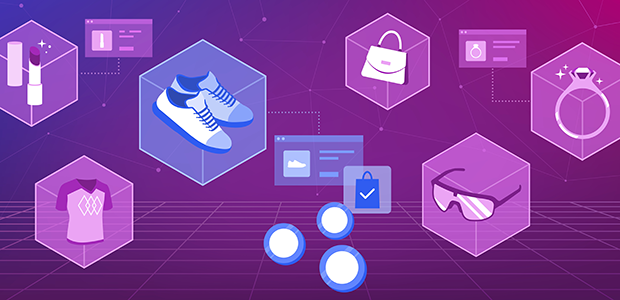
Is e-commerce fashion sleeping on AI?
The fashion e-commerce industry, valued at $765 billion in 2022 according to a report by Grand View Research, has grown tremendously over the last years, fuelled by an increase on digital connectivity, widespread smartphone use, and a generational shift towards online shopping. However, e-commerce fashion seems to be at risk of losing the growth it has achieved in the past decade by overlooking the transformative power of artificial intelligence.
As the COO at Cobalt, a startup that helps high-end fashion retailers in integrating emerging technologies like AI and blockchain into their online shopping experiences, my team and I have spent countless hours analysing algorithms and studying the e-commerce sector.
AI's Power in Personalised Fashion Recommendations
During our research, we noticed a trend: retailers are primarily using algorithmic recommendations tied to their own products. On the other hand, marketplaces like Amazon and Shopify provide more powerful recommendations by identifying buyer personas based on user-selected products from various brands and overall browsing behaviour.
Yet, even these more sophisticated recommendation algorithms predominantly focus on upselling products and suggesting checkout pages. They lack the persuasive power typically found through in-person interactions. Moreover, they operate on a one-size-fits-all approach, often missing the specific needs of individual customers.
The Importance of Tailoring Customer Experiences with AI
As a service provider, we aim to give our clients a competitive advantage, saving them from making substantial internal investments experimenting with tech, resources, and human capacity. But as a marketplace ourselves, we wanted to ensure we were leveraging AI as we should, so our clients, through our marketplace, could benefit from it. The rise of ChatGPT inspired us to dive deeper into AI.
Prior to this, AI chatbots were pretty much everywhere - on a multitude of websites and platforms. However, they were generally restricted to responding to specific prompts, and honestly, there was so much untapped potential. We were keen on harnessing the tailored touch of ChatGPT, but not in the usual chatbot way.
How AI Can Replicate In-Store Interaction Online
We envisioned an AI personal assistant that could mimic the rapport and personal touch of an in-store salesperson, but in an online setting. We wanted our clients to make their retail customers feel understood and valued, receiving personalized outfit and accessories suggestions that match their style and preferences and even alerts users to price drops or brand-specific discounts. That's the transformative experience our AI personal assistant can bring.
Our team started to work on an AI personal assistant for our own marketplace that could replicate the experience of an in-store salesperson, applying critical thinking and judgment to communicate to the user. Using natural language processing, instead of in-chat communication, our objective was to recreate the interaction between a customer and a salesperson in a physical store – an interaction that has the potential to significantly boost sales.
The relevance of this concept is clear in a study conducted by Accenture, where 75% of consumers preferred stores that recognized them, understood their purchase history, and included relevant recommendations.
AI as the Catalyst for Fashion E-Commerce Evolution
The potential of AI in the fashion e-commerce industry is immense, and while awareness of this potential is gradually growing, the actual application is still in its early stages. In some cases, the industry may not have the knowledge or resources to develop these AI solutions in-house. This is where partnerships with specialized tech companies can be valuable.
Moving forward, the question should be: who will be the next to wake up and seize this opportunity? The fashion e-commerce industry needs to stop hitting the snooze button on AI and embrace the dawn of a new, AI-driven era.


